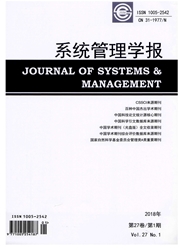

 中文摘要:
中文摘要:
随着大城市“城外居住、城内上班”这种生活-工作模式的普及,居民出行距离延长引起公交半径的增加,换乘就不可避免。针对这一现实需求与公交网络的特性,提出了符合乘客路径选择行为的广义公交路径定义,重点分析了乘客出行行为符合马氏决策过程的“无后效性”,详细给出了出行过程中涉及的状态-行动空间及状态转移概率,建立了基于马尔科夫链的非平衡公交客流分配模型,设计了相应的算法。最后,以成都市部分公交网络的实际运营数据为例,对模型和算法进行实例验证,并根据配流结果对参数进行了敏感性分析。
 英文摘要:
英文摘要:
Nowadays, the work and life mode of “living outside the city, working in the downtown” is very common in big cities in China. Thus the residents' travel distance is extended, so does the radius of public transportation and transfer is inevitable. According to the practical needs, combined with the particularity of transit network, the generalized bus route is defined to better depict the passengers' route choice behavior. Passengers' travel behavior in line with Markov decision process is analyzed and studied. The state-action space and the state transition probability involved in the process of transit travel are presented, an unbalanced public transit assignment model based on Markov chain is developed, and the corresponding algorithm is developed. An application example is presented with real data from Chengdu bus system to verify the model and the algorithm. Sensitivity analysis is presented as well based on the results of the transit assignment.
 同期刊论文项目
同期刊论文项目
 同项目期刊论文
同项目期刊论文
 期刊信息
期刊信息
